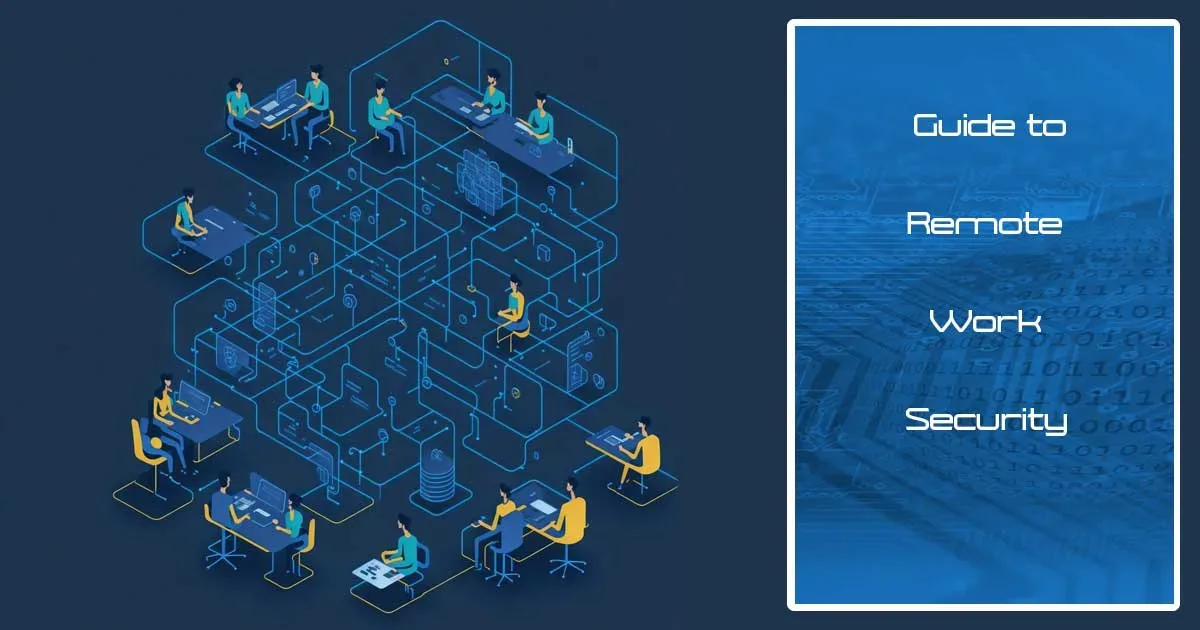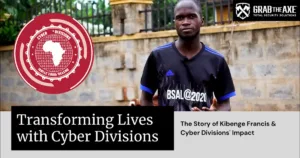The digital revolution has transformed the traditional workspace, introducing the era of remote work. This evolution brings both unmatched flexibility and significant security challenges, particularly highlighted by the COVID-19 pandemic’s impact.
The Critical Need for Remote Work Security
Remote work, with its promise of flexibility and a seamless work-life integration, has become irresistibly appealing. Yet, the swift shift to digital workspaces has spotlighted the critical issue of information security. Away from the secure confines of an office, remote employees often represent the most vulnerable point in a company’s security framework.
Challenges of Protecting Sensitive Information
In the digital era, the challenges of protecting sensitive information while accommodating remote work are multifaceted and require a detailed understanding to effectively mitigate risks.
- Unsecured Networks: The allure of free, public Wi-Fi for remote workers is undeniable. However, these networks are often inadequately secured, providing a fertile ground for cybercriminals. Attackers can easily deploy man-in-the-middle attacks to intercept and steal data transmitted over these networks, making any sensitive activity risky.
- Endpoint Vulnerabilities: The diversity of personal devices used for work-related tasks introduces a myriad of security vulnerabilities. Many of these devices are not equipped with corporate-level security measures, such as firewalls and antivirus software, making them susceptible to malware and other cyber threats. This situation is further complicated when devices are used both for personal and professional purposes, blurring the lines of security protocols.
- Phishing Scams: Cybercriminals have refined their phishing techniques, making them more deceptive than ever. These scams, often presented as legitimate communications from trusted entities, can trick employees into providing access to secure systems or sensitive information. The risk is heightened with remote work, as employees may not have immediate access to IT support or may be less vigilant outside the office environment.
- Data Interception: The transmission of data over unsecured or improperly secured networks can lead to interception by unauthorized parties. This is particularly concerning for organizations that deal with sensitive customer information, financial data, or proprietary business intelligence. Without robust encryption protocols, data in transit is vulnerable to eavesdropping and theft.
Adapting Security Measures During the Pandemic
The COVID-19 pandemic has undeniably accelerated the adoption of remote work, bringing to light the pressing need for comprehensive security measures. The transition, often implemented hastily to maintain operational continuity, has magnified pre-existing security concerns. Research, such as the pivotal study “Ensuring information security in the field of remote work,” emphasizes the escalated security risks and the imperative for organizations to adopt stringent security frameworks (2022).
Enhanced Strategies for Remote Work Security
- Implementing VPNs: Encouraging or mandating the use of Virtual Private Networks (VPNs) is critical. VPNs encrypt internet traffic, ensuring that data remains confidential and secure from interception attempts, even on public networks.
- Multi-factor Authentication (MFA): MFA adds layers of security by requiring additional verification steps beyond just passwords, significantly reducing the likelihood of unauthorized access.
- Comprehensive Employee Training: Regular, in-depth training sessions on the latest cybersecurity threats and best practices are essential. Empowering employees with knowledge and awareness is a powerful defense mechanism.
- Software Updates: Keeping all software, especially security software, up to date is a simple yet effective measure against cyber threats. Many attacks exploit vulnerabilities in outdated software, which updates can fix.
- Encrypted Communication Tools: Utilizing communication tools that offer end-to-end encryption protects the confidentiality and integrity of corporate communications, ensuring that sensitive conversations remain private.
Conclusion
As remote work becomes a permanent fixture, prioritizing security is non-negotiable. Understanding and proactively addressing these challenges can equip businesses with the tools needed for a secure digital workspace, ensuring both productivity and security in the digital age.
In light of these insights, it’s clear that safeguarding the remote workspace is not just an IT department’s responsibility but a collective effort. We encourage all businesses to reassess their remote work security protocols and consider implementing these enhanced strategies, for organizations looking to fortify their remote work security, partnering with a cybersecurity expert can provide tailored solutions and peace of mind. Secure your digital workspace today and ensure your business’s and employees’ safety in this ever-evolving digital landscape. Contact us now for a comprehensive security assessment and expert guidance tailored to your unique needs.
References
Ensuring information security in the field of remote work. (2022). Journal of Physics: Conference Series. https://doi.org/10.1088/1742-6596/2210/1/012008
Grensing-Pophal, L. (2023, September 22). Ensuring compliance and security in a remote work environment. HR Daily Advisor. Retrieved from https://hrdailyadvisor.blr.com/2023/09/22/ensuring-compliance-and-security-in-a-remote-work-environment/
Remote Work Security – To Learn More:
Small Business Cybersecurity Solutions: Defending Your Digital Domain





Pingback: Navigating Digital Security: In-depth Insights with UAT's Tristen Vaughn
Pingback: Business Security Services Phoenix AZ: A Strategic Approach to Safeguarding Your Enterprise - Grab The Axe